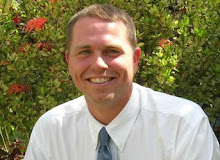Our school recently underwent our accreditation process and reviewed the foundational documents that direct the vision for our school. As a school, we decided to use the Middle States Association's, "Excellence by Design" protocol to drive this process and I am happy to report that our school has improved our planning ethic and successfully used the process to set a vision for the future of ACS. One of the tasks that Middle States requires is the creation of a school profile of graduate. This statement is meant to symbolize what qualities students at ACS should exemplify on a daily basis. The term graduate may be misleading, as this profile is now something that our entire school (K - 12) is committed to working with on a daily basis. As a school community, we worked in collaboration to define what attributes we would like our students to exemplify. At the end of this process, we determined that ACS graduates are:
Thinkers (Critical, Creative, Refective, Independent)
Responsible (Organized, Risk-takers, Open-Minded, Respectful of Self, Others and the World)
Well-Rounded (Balanced, Inquisitive, Adaptable, Knowledgeable, Effective Communicators)
Leaders (Diligent, Motivated, Confident, Principled, Collaborative)
Since our accreditation visit in May last year, we have been working as a school to identify ways that we can embed these attributes into the daily life of our school. For the past few years, we have utilized student led conferences in March which allow our students to collect evidence of their learning and have discussions with their parents about the successes they have each year. In the past, we have asked our students to collect samples of work which demonstrated achievement or growth from the classes, reflect on their learning process and discuss their portfolios with their parents. This year, our faculty has now decided to use the profile of graduates as our theme for student led conferences. Throughout the course of the year, we will be asking our students to collect evidence of leadership, thinking skills, responsibility and demonstrate how they are well rounded students. This focus will really help us to improve in a variety ways:
- Helps to educate our students and parents to make them more aware of our school's mission.
- Allows our students to identify areas of improvement to focus on in the future. For example, students who have difficulty collecting evidence of leadership will work with their teachers and parents to create a plan to improve their leadership skills in the coming year.
- Creates support for the profile amongst our entire faculty. Every teacher needs to recognize that we want to see our students demonstrating these traits in every course.
- Provides our school with a refined focus. As a community we have made a commitment to helping to develop these attributes in all of our students. Asking our students to collect evidence of the attributes will allow us to gauge our success.
- Allows for a consistent SLC theme across our middle school. In order to conduct Student Led conferences, you must have a purpose or theme for student portfolios. In the past, each grade level had a slightly different theme which made it difficult for teachers teaching at all three grade levels in middle school.







